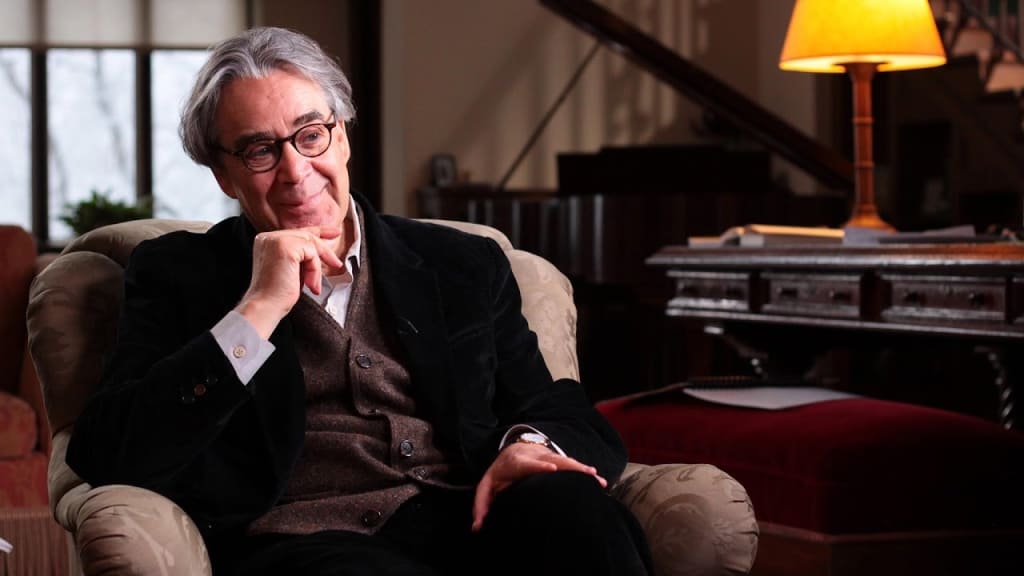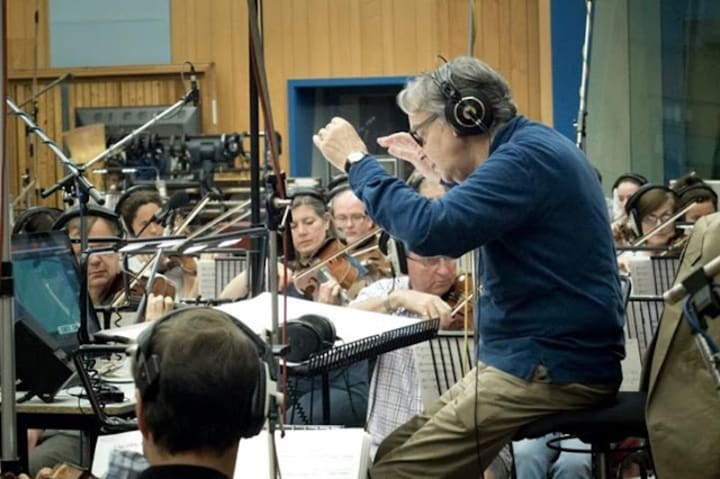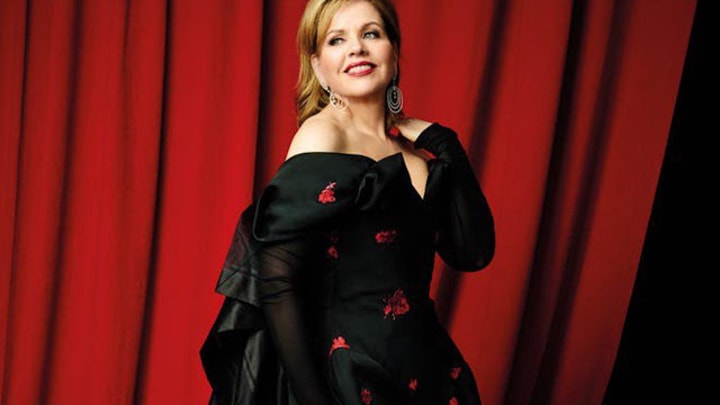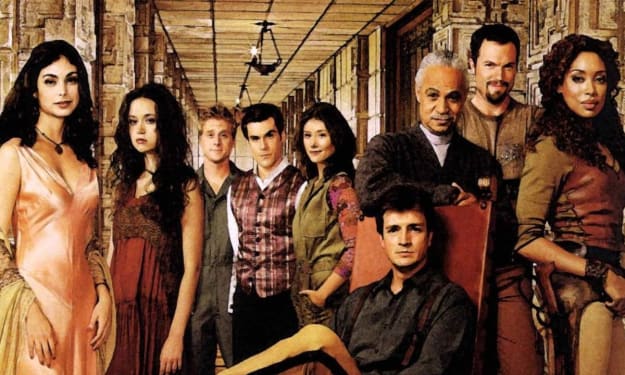Meet The Composer of 'The Lord of The Rings' Soundtrack
How Much Do You Know About The Legendary Composer?

Movie scenes that don’t have music can sound strange and foreign to the ear. Obviously, there are certain scenes in movies that aren’t supposed to have music, that’s the beauty of those scenes and what they are trying to convey. However, the vast majority of movie and TV series scenes have music. And if that movie happens to be a fantasy epic, then you need a great composer to go along with it. There are many famous soundtrack composers, from Hans Zimmer to John Williams, Patrick Doyle and many others. The one who was skilled enough to work on the score for Peter Jackson’s Lord of the Rings movies is Howard Shore.
The music of The Lord of the Rings is mesmerizing, beautiful, haunting, and heroic. Some of the pieces from the Hobbit themes to the theme of Rohan are very well known and loved by all. The music helps transport the viewers to Middle Earth and adds an entire extra element to the visual screen by helping enhance the viewer’s emotions and thoughts while watching. The ethereal music of the elves is very different from the battle music in front of The Black Gate while Frodo is going up Mount Doom with the Ring. Fans are about to get even more amazing work from this composer as Howard Shore is making his way back to Middle Earth, composing Amazon’s The Rings of Power series.
RELATED: What Is In The Appendices Of 'The Lord Of The Rings'?
Interestingly enough, it was recently revealed that Howard Shore’s score was not used for the teaser trailer for The Rings of Power that aired for the first time during the Super Bowl in February 2022. OneRing.Net confirmed that Calvary Music and its founder, Erskine, is responsible for the epic score in the trailer. Calvary Music is also responsible for the trailer music for Disney+’s Obi-Wan Kenobi trailer that dropped recently as well. What is fascinating is that Erskine was able to use some of John Williams’ pieces and blend them together in the Obi-Wan trailer, but was not able to do the same for The Rings of Power trailer. It is still unclear as to why this is or why Howard Shore did not do the music for the teaser trailer.
Howard Shore’s Lord of the Rings music career includes three Academy Awards, two Golden Globes, and four Grammy Awards. Along with the release of the theatrical versions of The Lord of the Rings movies, they released Howard Shore’s theatrical versions of the soundtrack. Peter Jackson also decided to release an epic extended version of all three movies not long after the movies were released. A few years ago, Howard Shore’s extended edition score was released, much to the joy of fans who now had almost triple the amount of music to listen to for each film. For context, the original running time for Shore’s score for The Return of the King was 1 hour and 12 minutes. The extended version of the score, however? 3 hours and 49 minutes. Which is insane and really shows how much work Shore actually went into for the trilogy.

Howard Shore didn’t just craft a musical soundtrack, he used instruments that weren’t normally used, he translated Tolkien’s languages, and translated English into Tolkien’s languages to add to the pieces in the background. The singing that is in the background of the pieces is a real choir. The London Philharmonic Orchestra is the one who performed it comprising of between 230 and 400 musicians at any given time. 3 choirs helped in the creation as well: London Voices, Wellington Maori-Samoan choir, and London Oratory School Schola boy choir. Shore created leitmotifs which are musical themes that are associated with particular characters or a cast of characters. When the music starts, we know immediately who is supposed to be on screen (or coming). In an interview, Shore stated:
"The use of the themes and the leitmotifs were used for clarity in storytelling. Tolkien’s world is considered to be one of the most complex fantasy worlds ever created… Not everybody who sees the films may have read the books and have understood all the different characters, cultures and objects. The music was used to help clarify this complex story."
The instruments and musical notes that Shore uses to convey the themes and motifs and capture the essence of the story are ones that have not been used very often for music. Some of the them include the sarangi, a ney flute, and a monochord for the opening of The Fellowship of the Ring song titled; "One Ring to Rule Them All." Which helped to set the tone of mystery and sadness, yet hopeful all the same. For "Concerning Hobbits” Shore used a mandolin, Celtic harp, and tin whistle. Which gave the piece a more pastoral feel. For songs involving the Uruk-hai and Isengard, Shore selected harsher sounding instruments, usually associated with the world of industrialization: the Japanese Taiko drum, blacksmith anvils, and metal chains. The last two aren’t normally considered to be instruments, and yet Shore looked at them and decided that they would be.

Along with fascinating musical instruments, Shore used a lot of singers as well. In the background of his pieces, there was various different languages from Quenya and Sindarin to Khuzdul Black Speech to Old English and Adunaic. Aivale Cole sang the heartrending parts from Gandalf’s fall from the bridge in Khazad-dûm. Ben Del Maestro, a young soprano, added voice to “Forth Eorlinglas” and “The Last March of the Ents”. Renée Flemming (pictured above) was the main vocalist in The Return of the King, being famous for her singing in “The Grace of Undómiel” about Arwen, and then again when the eagles rescue Frodo and Sam. Shore uses Tolkien’s languages from his various poems and songs from the books in the background of many of his songs. It adds to the story, becoming a part of it. Pippin’s song to Denethor in The Return of the King is a part of a poem that Tolkien wrote. The verses in the Khazad-dûm songs are not just gibberish, they are real poetic verses that Tolkien wrote. In addition to this, the motifs/musical interludes from Annie Lennox’s end credits song "Into the West" and Enya’s end credit song "May it Be" are also played throughout the movies as well and are also translated/taken from Tolkien’s work.
Howard Shore’s Lord of the Rings score is a work of genius and talent. Without it, Jackson’s Lord of the Rings movies wouldn’t be nearly as good. The music of The Lord of the Rings tells the story even as much as the visuals that Jackson crafted. Fans are hoping to get more of the same with Howard Shore’s score for The Rings of Power.
Thank you for reading our article today. If you want to keep up to date with our latest stories, please consider becoming a pledge or, alternatively, please consider leaving a tip. This will help us continue to keep bringing new and interesting content. You can also check out our video content on the following YouTube channels, where you can subscribe to keep up to date: Star Wars Culture, Eye On Canon, The Star Wars Underworld, Chatter Squadron, The Roll Out, Meg in the Morning.
READ NEXT: Kathleen Kennedy Teases That 'Obi-Wan Kenobi' Season 2 Could Be In The Works
Written by Elizabeth Dresdow
Source(s): Collider, Wikipedia.com, TheOneRing.net
Syndicated from Culture Slate






Comments
There are no comments for this story
Be the first to respond and start the conversation.